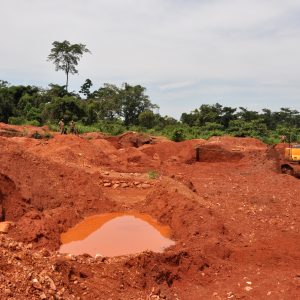Challenge: addressing a lack of coherent data on mineral supply chain-related incidents
Downstream companies face challenges in obtaining accurate, up-to-date information on incidents and risks that may be impacting their mineral supply chains. To help plug this gap, civil society organisation (CSO) reporting can provide an essential source of information at the national level as well as in individual communities. However, local CSO reports can vary in terms of levels of detail, accuracy and credibility, and identifying and aggregating relevant and reliable information can be a challenge for many downstream supply chain actors. Against this backdrop, Levin Sources was contracted by a large downstream supply chain actor to provide expert support to their supply chain research and risk assessments for mineral supply chains originating in the DRC.
Solution: in-depth desk-based analysis of civil society incident reporting in eastern DRC
Levin Sources conducted a detailed desk-based analysis of civil society reporting in eastern DRC, with a focus on tin, tungsten, tantalum (3Ts), gold and cobalt. The project began with the identification of a wide range of CSO incident reports in the target region. Each incident report was then analysed according to a matrix developed specifically for this context, subjected to rigorous data triangulation methods and assessed against parameters of CSO credibility, report credibility and level of detail. The reports were then cross-checked against industry initiative incident mitigation activities to identify those that had not been mitigated and remained to be resolved.
Results: informing better grievance mechanisms in ASM supply chains
The final product of the research was a matrix listing the incidents and their status, a short report outlining the main findings of the analysis, including recommendations for follow-up actions to the high-risk incidents identified. In highlighting the extent of reported mineral supply chain incidents in the DRC, the project and its findings were also a key driver in the development of a grievance mechanism by an industry association for its members, thus promoting a more responsible minerals sector worldwide.



